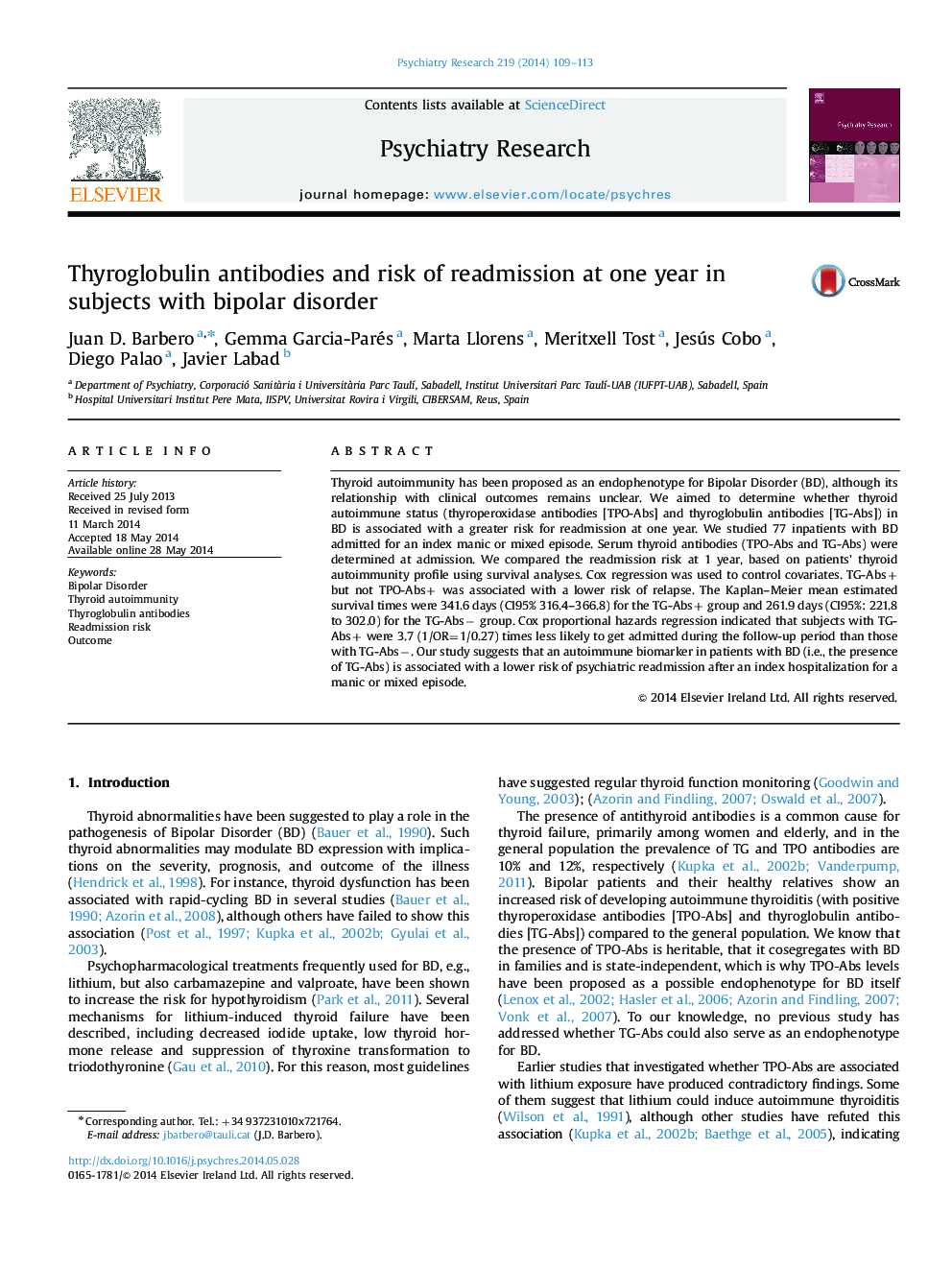| Article ID | Journal | Published Year | Pages | File Type |
|---|---|---|---|---|
| 332940 | Psychiatry Research | 2014 | 5 Pages |
Thyroid autoimmunity has been proposed as an endophenotype for Bipolar Disorder (BD), although its relationship with clinical outcomes remains unclear. We aimed to determine whether thyroid autoimmune status (thyroperoxidase antibodies [TPO-Abs] and thyroglobulin antibodies [TG-Abs]) in BD is associated with a greater risk for readmission at one year. We studied 77 inpatients with BD admitted for an index manic or mixed episode. Serum thyroid antibodies (TPO-Abs and TG-Abs) were determined at admission. We compared the readmission risk at 1 year, based on patients׳ thyroid autoimmunity profile using survival analyses. Cox regression was used to control covariates. TG-Abs+ but not TPO-Abs+ was associated with a lower risk of relapse. The Kaplan–Meier mean estimated survival times were 341.6 days (CI95% 316.4–366.8) for the TG-Abs+ group and 261.9 days (CI95%: 221.8 to 302.0) for the TG-Abs− group. Cox proportional hazards regression indicated that subjects with TG-Abs+ were 3.7 (1/OR=1/0.27) times less likely to get admitted during the follow-up period than those with TG-Abs−. Our study suggests that an autoimmune biomarker in patients with BD (i.e., the presence of TG-Abs) is associated with a lower risk of psychiatric readmission after an index hospitalization for a manic or mixed episode.
